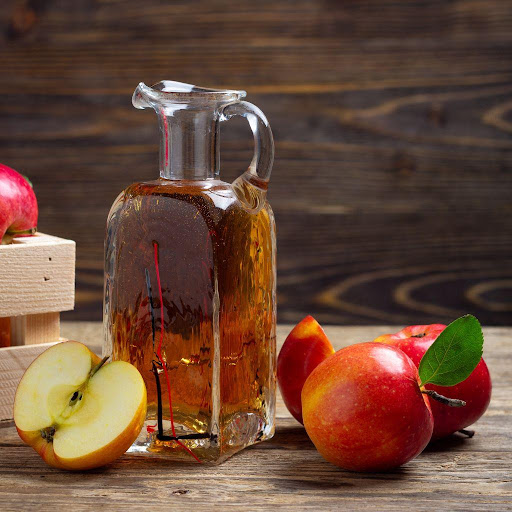Herb vinegars are a culinary staple that have been used for centuries to add flavor and depth to dishes. These vinegars are made by infusing vinegar with fresh herbs, creating a flavorful and aromatic liquid that can be used in a variety of ways. In this blog, we will explore the history of herb vinegars, the types of herbs used, and how to make your own herb vinegar.
History of Herb Vinegars
The use of herb vinegars can be traced back to ancient Rome, where vinegar was used as a preservative for food. The Romans would add herbs to the vinegar to create a more flavorful and aromatic liquid. The use of herb vinegars then spread throughout Europe, where it became a popular condiment for meats, fish, and vegetables.
During the Middle Ages, vinegar was used as a medicinal tonic and was believed to have healing properties. The addition of herbs to the vinegar was thought to enhance these properties and make the tonic more effective. Herb vinegars were also used to preserve fruits and vegetables, as the vinegar’s acidity would prevent the growth of harmful bacteria.
Today, herb vinegars are still widely used in cooking and can be found in many specialty food stores and markets. They are a popular condiment for salads, meats, and vegetables, and can add a unique flavor to any dish.
Types of Herbs Used in Herb Vinegars
There are a variety of herbs that can be used to make herb vinegar, each with its own unique flavor and aroma. Here are some of the most commonly used herbs:
- Basil – adds a sweet, slightly peppery flavor to the vinegar
- Thyme – has a strong, earthy flavor and aroma
- Rosemary – adds a pine-like flavor to the vinegar
- Oregano – has a slightly bitter, pungent flavor
- Tarragon – has a sweet, anise-like flavor
- Sage – has a slightly bitter, earthy flavor
- Mint – adds a cool, refreshing flavor to the vinegar
- Dill – has a slightly sweet, tangy flavor
Other herbs that can be used to make herb vinegar include parsley, chives, cilantro, and marjoram. You can experiment with different herbs to create your own unique flavor combinations.
How to Make Herb Vinegar
Making your own herb vinegar is easy and can be done with just a few simple ingredients. Here’s how to do it:
Ingredients:
- 1 cup of vinegar (white wine vinegar, red wine vinegar, or apple cider vinegar)
- 1 cup of fresh herbs
- Sterilized glass jar with a lid
Instructions:
- Wash the herbs thoroughly and pat them dry with a clean towel.
- Roughly chop the herbs and place them in a sterilized glass jar.
- Heat the vinegar in a small saucepan until it just begins to simmer. Be careful not to boil the vinegar.
- Pour the hot vinegar over the herbs in the glass jar.
- Allow the herb vinegar to cool to room temperature.
- Cover the jar with a lid and store it in a cool, dark place for at least two weeks.
- After two weeks, strain the herb vinegar through a fine-mesh sieve or cheesecloth to remove the herbs.
- Transfer the herb vinegar to a clean, sterilized glass jar and store it in a cool, dark place.
You can use the herb vinegar immediately or store it for up to six months.
Ways to Use Herb Vinegar
Herb vinegar can be used in a variety of ways in the kitchen. Here are some ideas:
- Salad dressings – use herb vinegar as a base for homemade salad dressings.
Marinades – use herb vinegar to marinate meat, fish, or vegetables before cooking. 3. Sauces – add herb vinegar to sauces to give them a unique flavor.
- Pickling – use herb vinegar to pickle vegetables or fruits.
- Seasonings – use herb vinegar as a seasoning for roasted or grilled vegetables.
- Drinks – use herb vinegar as a base for homemade shrubs or as a flavoring for cocktails.
Conclusion
Herb vinegars are a simple and flavorful way to add depth and complexity to your cooking. With just a few ingredients, you can create a unique and delicious condiment that can be used in a variety of ways. Whether you use it to dress salads, marinate meats, or add flavor to sauces, herb vinegar is a versatile ingredient that should be a staple in any home cook’s pantry. So why not try making your own herb vinegar today and experiment with different herbs to find your favorite flavor combination?
Alert: While spices can have many beneficial properties for health, using them for medical purposes should be done under the guidance and supervision of a healthcare professional or specialist. Some spices may interact with medications or cause adverse reactions in certain individuals, and it is important to use them safely and appropriately. If you are considering using spices for a medical condition, it is important to consult with a healthcare professional before doing so.
